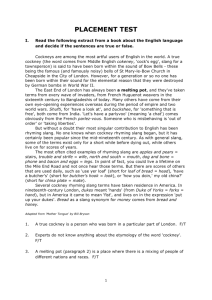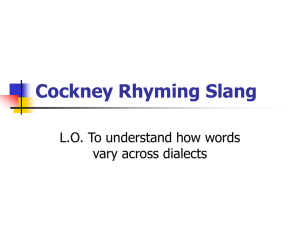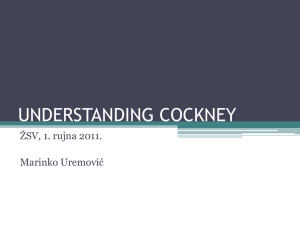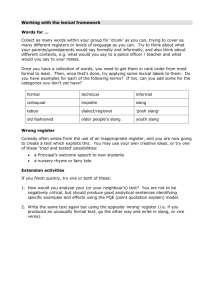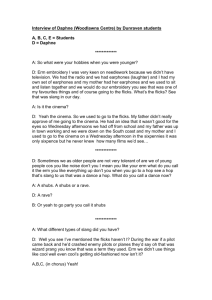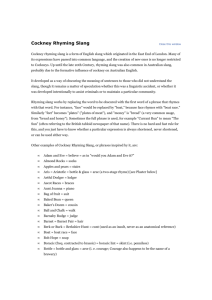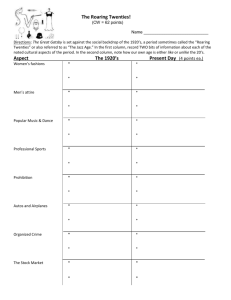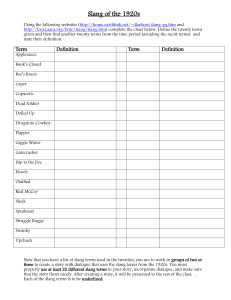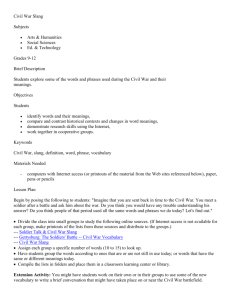Londoners baffled by Cockney rhyming slang
advertisement
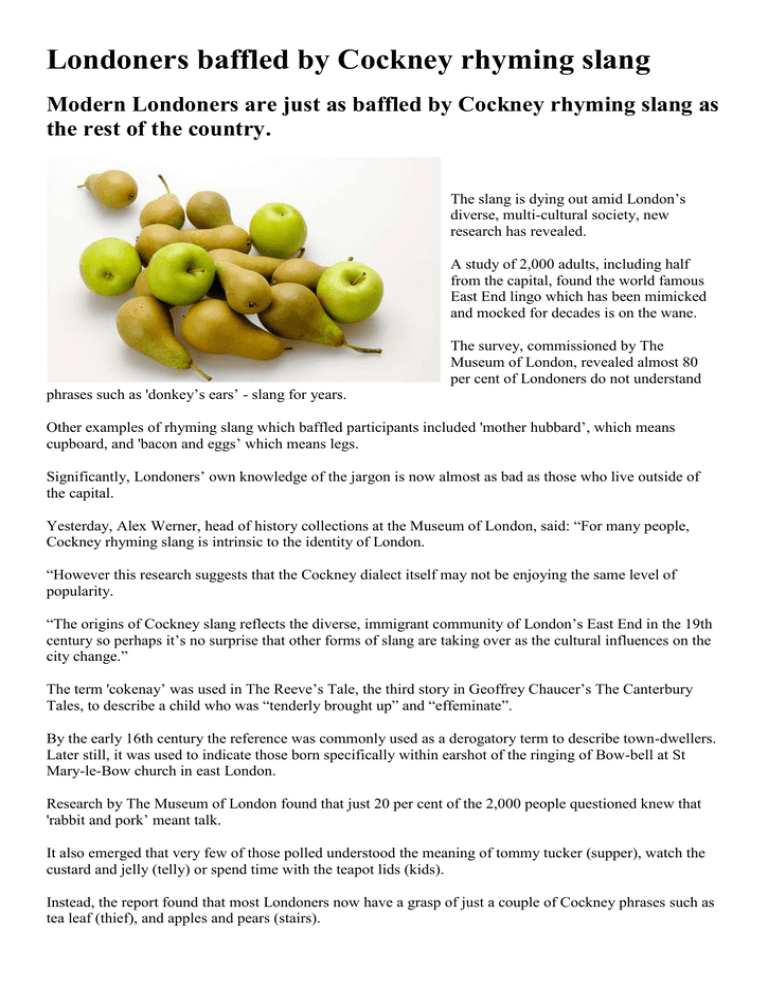
Londoners baffled by Cockney rhyming slang Modern Londoners are just as baffled by Cockney rhyming slang as the rest of the country. The slang is dying out amid London’s diverse, multi-cultural society, new research has revealed. A study of 2,000 adults, including half from the capital, found the world famous East End lingo which has been mimicked and mocked for decades is on the wane. The survey, commissioned by The Museum of London, revealed almost 80 per cent of Londoners do not understand phrases such as 'donkey’s ears’ - slang for years. Other examples of rhyming slang which baffled participants included 'mother hubbard’, which means cupboard, and 'bacon and eggs’ which means legs. Significantly, Londoners’ own knowledge of the jargon is now almost as bad as those who live outside of the capital. Yesterday, Alex Werner, head of history collections at the Museum of London, said: “For many people, Cockney rhyming slang is intrinsic to the identity of London. “However this research suggests that the Cockney dialect itself may not be enjoying the same level of popularity. “The origins of Cockney slang reflects the diverse, immigrant community of London’s East End in the 19th century so perhaps it’s no surprise that other forms of slang are taking over as the cultural influences on the city change.” The term 'cokenay’ was used in The Reeve’s Tale, the third story in Geoffrey Chaucer’s The Canterbury Tales, to describe a child who was “tenderly brought up” and “effeminate”. By the early 16th century the reference was commonly used as a derogatory term to describe town-dwellers. Later still, it was used to indicate those born specifically within earshot of the ringing of Bow-bell at St Mary-le-Bow church in east London. Research by The Museum of London found that just 20 per cent of the 2,000 people questioned knew that 'rabbit and pork’ meant talk. It also emerged that very few of those polled understood the meaning of tommy tucker (supper), watch the custard and jelly (telly) or spend time with the teapot lids (kids). Instead, the report found that most Londoners now have a grasp of just a couple of Cockney phrases such as tea leaf (thief), and apples and pears (stairs). The most-used cockney slang was found to be the phrase 'porky pies’ with 13 per cent of those questioned still using it. One in 10 used the term 'cream crackered’. Forty per cent of the study also said they felt cockney rhyming slang was dying out, and a third admitted they were sad it was fading away. David Crystal, honorary professor of linguistics at Bangor University, said: “Cockney slang was never very widely known as it started as a secret way for people to talk to each other. As soon as the slang became known the cockney’s stopped using it “What I’ve noticed is that there are still quite a lot of people out there inventing new rhyming slang. “In my files I’ve seen in the last two or three years slang such as 'he was wearing his Barack Obamas’, meaning pyjamas and 'he’s on the Adrian Mole’, meaning dole. “So while it might be true that cockney slang may be dying out it’s worth pointing out that whatever started our impulse to rhyme words is still with us today.”
